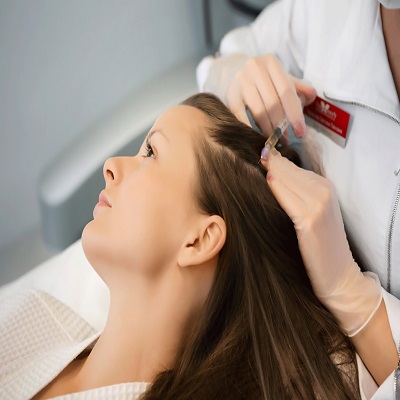Alopecia Areata is a complex autoimmune condition that leads to unpredictable and often patchy hair loss, affecting both men and women. Unlike typical pattern baldness, this condition involves the immune system mistakenly attacking healthy hair follicles. As medical science continues to advance, a novel approach gaining attention is Exosomes Hair Therapy In Islamabad. This innovative treatment offers hope to individuals battling the emotional and physical impacts of alopecia areata.
Understanding Alopecia Areata
Alopecia Areata is characterized by the sudden appearance of hairless patches, typically on the scalp but sometimes affecting the eyebrows, beard, and other body areas. While the exact cause remains unclear, it is widely accepted that immune system dysfunction plays a significant role. The condition may arise due to genetic predisposition, environmental triggers, or stress.
Traditional treatment options for alopecia areata include corticosteroids, topical immunotherapy, and minoxidil. However, these options often provide temporary relief or inconsistent results. As a result, medical professionals are now exploring regenerative therapies like exosomes to manage and potentially reverse this type of hair loss.
What Are Exosomes?
Exosomes are microscopic extracellular vesicles released by stem cells. They contain proteins, lipids, RNA, and growth factors that are essential for cellular communication and tissue regeneration. In hair restoration, exosomes are administered directly into the scalp to stimulate dormant hair follicles, promote new follicle development, and modulate immune responses.
Unlike stem cell therapy, which uses entire cells, exosomes therapy isolates the regenerative signals these cells send, offering a highly targeted and safe option. This quality makes it particularly relevant in treating autoimmune-related conditions such as alopecia areata.
How Exosomes Target Alopecia Areata
The challenge in treating alopecia areata lies in calming the immune system’s assault on hair follicles while also rejuvenating the damaged tissue. Exosomes therapy addresses both concerns:
1. Immunomodulatory Effects
Exosomes have anti-inflammatory and immunomodulatory properties that can reduce the immune system’s attack on hair follicles. By introducing exosomes to affected areas, the body may receive signals that help it recognize these follicles as normal tissue, thus minimizing further damage.
2. Hair Follicle Stimulation
Apart from suppressing inflammatory responses, exosomes deliver growth factors that reactivate the hair growth cycle. They encourage follicular regeneration, angiogenesis (formation of new blood vessels), and collagen production—all of which are necessary for healthy hair regrowth.
3. Non-Invasive Application
The therapy is typically delivered through microneedling or direct injections into the scalp. The process is minimally invasive, causes little discomfort, and requires minimal downtime, making it ideal for patients looking for non-surgical alternatives.
Results and Expectations
Results from exosomes therapy in alopecia areata patients can vary based on factors such as severity of the condition, patient age, duration of hair loss, and overall health. Some patients may observe new hair growth in as little as two months, while others may require a series of treatments for noticeable improvement.
It is important to note that while exosomes can provide significant benefits, they are not a guaranteed cure for everyone. However, in clinical and real-world applications, many patients report reduced inflammation, less hair shedding, and improved hair density following treatment.
Advantages of Using Exosomes for Alopecia Areata
-
Targeted Immune Modulation: Helps regulate autoimmune responses without systemic immunosuppression.
-
Regeneration-Focused: Encourages natural repair of the follicle structure.
-
Reduced Side Effects: Unlike corticosteroids or immunotherapy, exosomes do not carry the same risk of adverse systemic effects.
-
Scalability and Compatibility: As cell-free therapy, exosomes are biocompatible and safe for repeated use.
Is It Suitable for Everyone?
Exosomes therapy may not be suitable for individuals with advanced scarring alopecia or irreversible follicle damage. However, for those in the early to moderate stages of alopecia areata, it presents a valuable, scientifically supported treatment path. A thorough consultation with a hair restoration specialist is essential to evaluate candidacy.
Combining Therapies for Better Results
In many cases, exosomes therapy can be paired with other treatments like PRP (Platelet-Rich Plasma), topical agents, or low-level laser therapy (LLLT) to enhance outcomes. This multimodal approach ensures that both the underlying inflammation and follicular dysfunction are addressed for comprehensive care.
Availability in Islamabad
The availability of exosomes therapy in Islamabad is increasing, with advanced dermatology and aesthetic centers offering this progressive solution. Medical professionals in the region are adopting exosomes as part of their hair restoration arsenal due to the therapy’s regenerative capabilities and suitability for autoimmune-related hair loss.
Patients looking for an advanced solution to alopecia areata can benefit from consulting the experts at SKN Cosmetics clinic. Their experienced team offers state-of-the-art diagnostic assessments and access to the latest innovations like Exosomes Hair Therapy In Islamabad, ensuring that each patient receives a personalized and effective treatment plan.
